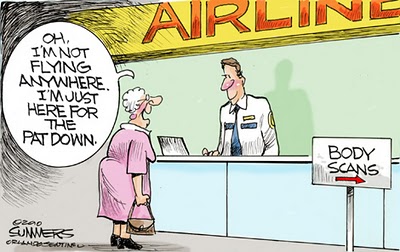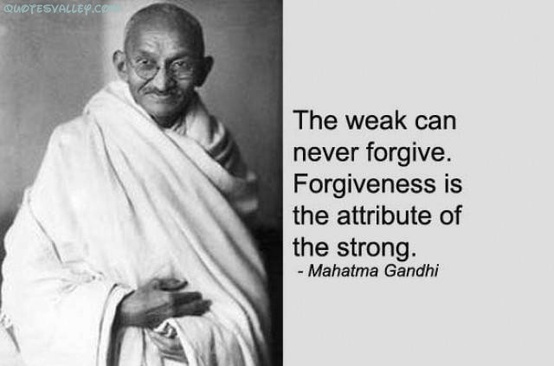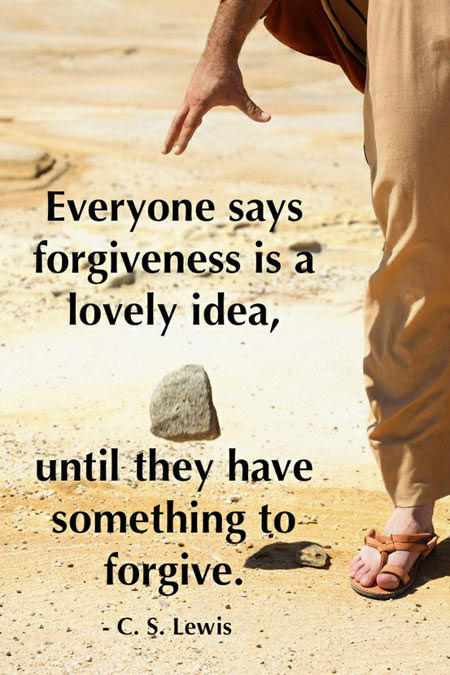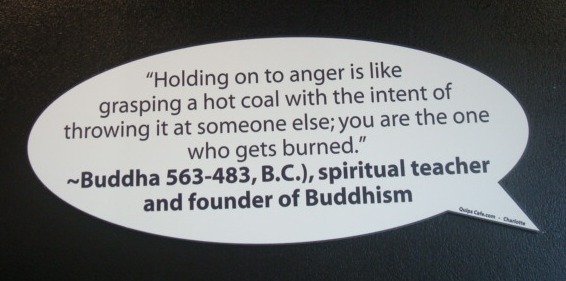Walls generally serve at least one of three purposes; to keep something protected within, to protect from the dangers without, or to allow a degree of privacy.
In 1961, communist East Germany had erected a wall to prevent her people from entering democratic West Germany. As walls tend to do, it hindered freedom and discouraged relationships.

It didn’t just divide a city, it divided a country and by 1987, it was clearly more than just a wall. The famous structure had become a symbol of communist oppression. Known as “The Berlin Wall”, it was 12 feet high, almost 100 miles long and had only two openings for access, both heavily guarded checkpoints. And as far as every one knew, it wasn’t coming down any time soon.
On June 12, 1987, President Ronald Reagan issued a direct challenge to Soviet Leader Mikhail Gorbachev to destroy the Berlin Wall. Though the wall was outside his country’s jurisdiction, Gorbachev’s communist influence helped keep it intact. In a speech at the Brandenburg Gate, behind two bulletproof glass panes, President Reagan’s challenge was bold, yet simple:
“Mr. Gorbachev, TEAR DOWN THIS WALL!”
We live among walls every day. Our homes are filled with them. Our schools and offices are lined by them. We paint them with our favorite colors and hang mirrors and paintings and photos on every one. We can’t go anywhere without seeing one since life would not be fun or safe without them. In many ways, they are necessary for our survival. We need a certain level of protection and privacy in order to function.
Walls, obviously, are not only physical in nature. Some of the biggest, strongest walls I have ever seen are emotionally constructed. Some of the most impenetrable walls that exist, live within the human heart. Think I am over-exaggerating? Ask any counselor who spends a career trying to unlock a person’s heart. Ask any social worker who deals with abused children. Ask any woman who has ever tried to love an emotionally unavailable man. They will tell you that in many cases it is easier to sledge-hammer through a 4 foot thick concrete wall than it is to penetrate an emotional wall surrounding a person’s heart.
From my biased vantage point, men tend to be more natural at wall building than women. It seems that men build their walls before being hurt. Women build theirs afterward. For being the gender known for bravery, acts of valor and courage – many men are emotional cowards, afraid of letting any portion of their wall down and exposing a tender heart. It’s not that men don’t have a heart, as some women believe. It’s that they are afraid to lower the complex steel scaffolding that surrounds theirs. For many men out there, they have spent years carefully building a fortress around their thoughts, emotions and true feelings. For those types of men, it is less perilous to defend a woman than truly talk to one. It’s easier to slay a ferocious dragon than to let down our emotional guard. I know, I used to be one of those men. In many ways, I’m a recovering emotional wall builder. Like an alcoholic, I am probably always one decision away from grabbing a brick and rebuilding a wall. Perhaps I’m not alone in this daily struggle.
Emotional walls are no respecter of person, gender, age, background or position. For many, emotional walls are created instinctively and out of necessity to protect a hidden secret, abused past or broken heart. Oftentimes they are erected out of fear, insecurity, rejection, abandonment, loss of relationship, traumatic experiences, bullying, criticism, etc. Regardless of their reason of existence, they are very real, very easy to assemble and once in place, very difficult to remove. Like a physical wall, emotional walls are normal and necessary. The existence of a wall is not the problem, it is the purpose of the wall and the reason for its existence that matters.
Because emotional walls are invisible, only the possessor knows if it is in place and how high it really is. Though it is there for a reason, even a good reason, it doesn’t mean it needs to remain – or even be that high. Though some walls are important for us to have, I would venture to say – most of the walls we keep up-end up hindering us more than protecting us.
Several months ago I took a flight for a business trip. While going through security, I noticed the TSA folks had stopped the dear old lady in the X-ray machine before me. She was pulled aside, apparently randomly, and searched rather extensively. Granted, she could have been an Al-Qaeda supporter. I guess there was a chance her girdle was strapped with explosives. I suppose it is possible that she was a Muslim terrorist.  But, honestly she looked Grandma-ish. She had probably just baked chocolate chip cookies and read a story to a grandchild on her lap. Why do we frisk people like that? Because 11 years ago, some lunatics did the unthinkable causing us, as a nation, to put some “walls” up. Those walls are necessary for our protection – but they are also up (most times) for the wrong people. Though it keeps us safe from the abusers, it also keeps many good people out as well. In the same way, our emotional walls both help us and hinder us – often at the same time.
But, honestly she looked Grandma-ish. She had probably just baked chocolate chip cookies and read a story to a grandchild on her lap. Why do we frisk people like that? Because 11 years ago, some lunatics did the unthinkable causing us, as a nation, to put some “walls” up. Those walls are necessary for our protection – but they are also up (most times) for the wrong people. Though it keeps us safe from the abusers, it also keeps many good people out as well. In the same way, our emotional walls both help us and hinder us – often at the same time.
If you’re normal, you have emotional walls in place. If you’re transparent, you may admit that they have been up for too long. If you’re honest, you might agree that they are higher than they need to be. You may be successful in keeping abusive people out, but at the same time – you are preventing access to the positive people as well. Like chemotherapy to a cancer patient, it doesn’t just kill the bad cells. It kills all cells. Though chemo can be effective in its goal (removing the cancer), it also removes many positive aspects at the same time. Such is the same effect as most of our emotional walls.
When one falls off of a bike or a horse, a protective wall goes up and the fallen rider is tempted to never mount the seat again. Most of us would recognize, however, that it is in their best interest to get back on again, eventually…sooner rather than later. Though the fall is painful and a season of rest may be necessary, it doesn’t mean it should be permanent. When it comes to pain, though, most of us prefer physical over emotional. We’d rather deal with a skinned knee than a bruised ego. We would rather break a bone than crush our pride. A husband cheats and the wife puts her wall up to avoid all men. A girlfriend breaks up with you and from behind your wall you proclaim, “I’m becoming a monk – done with all dating.” Because relationships are so intimate and personal, they run the risk of hurting us deeply when they go astray. Walls are natural consequences when we experience such pain. Just as a deep burn from a stove can discourage someone from future cooking, in like fashion we shy away from relationships when we’ve been burnt by a loved one in our past.
When God decided to place humans on the map, He did not put us on sports teams. He did not place us in military troops. He did not organize us by cubicles in an employer’s office. Instead, He placed us into close relationships in the context of a family. As He communicated to Adam in the Garden of Eden, “It is not good for man to be alone.” (Genesis 2:18) Because of the fall and our sinful human nature and innate selfishness, we tend to hurt one another. Once hurt, that pain causes us to retreat or hide behind thick emotional walls. Those walls keep us alone and isolated from the very thing we were created to enjoy: relationships.
Jacob understands walls. He created an instant one the moment he betrayed his older brother, Esau (Genesis 27). In the biblical day and age where the father’s blessing meant everything to the first-born son, Esau was moments away from receiving his. This blessing was not just an indication of a father’s approval but it was intended to result in prosperity and success. It was a formal declaration, if not a prayer, that God Himself would bless the recipient.
You can imagine the horrified shock on Esau’s face when he learned that his little brother, Jacob stole the blessing intended for him. In a shrewd and cunning move, Jacob deceived his elderly and blind father (Isaac) and tricked him into giving the blessing intended for Esau. The only thing more chilling about the deception was that it was initiated and crafted by the boy’s mother, Rebekah. It’s the stuff of blockbuster movies: the son tricks the father and betrays the brother at the suggestion of the mother. As is often the case in families, the “fruit doesn’t fall far from the tree.”
Esau was outraged and understandably so. The blessing could only be given once, even if it was given under false pretenses. Realizing he had lost everything due to trickery, he vowed to kill his brother soon after his father’s impending death. For 20 years, Jacob hid from Esau convinced that a meeting would be the end of him. Time, they say, heals all wounds. It certainly helped in the ensuing two decades and Esau’s anger eventually softened towards his brother. When they finally did meet, the wall between them was dismantled and Esau greeted his brother Jacob with a warm embrace. The wall was torn down. Forgiveness had occurred. The relationship was restored and they had about 20 years to catch up on. Two decades of wasted time keeping a wall in place that should have been removed years prior.
Isn’t that how we are? Building walls when we shouldn’t. Keeping them up longer then they need to be. Holding grudges. Keeping score. Wasting precious time with those we should love.
Do you have an emotional wall up? Maybe it’s time to take it down, even if it’s been up for decades. Why not at least remove a few bricks? Maybe it’s time to forgive the offense and embrace the offender? Maybe it’s time to forget the past and try to build a new future, with whatever time is left on the clock?
Perhaps today is the day that an email is written, a letter is mailed or a phone call is made? Walls are there for a reason and a season and perhaps your season is ending?
As for the Berlin Wall, 23 months after President Reagan’s challenge, the wall was dismantled. East & West Germany were finally one country. Democracy defeated Communism. Freedom trumped bondage. Peace was restored and relationships were reunited. The wall served a purpose and now it is a thing of the past.
Life is short. Relationships are important. Walls don’t just keep bad things out. They keep you trapped in. What walls in your life need to go?




 When something expensive is broken and money is flowing, we are quick to throw the broken item away and simply buy a new one. But when something costly is broken and cash is low, we must figure out how to fix what we have. Unfortunately, as a “wealthy, first-world” country, we have been allowed to replace too many things for too long. In fact, in many ways – it’s actually easier and cheaper to buy something new.
When something expensive is broken and money is flowing, we are quick to throw the broken item away and simply buy a new one. But when something costly is broken and cash is low, we must figure out how to fix what we have. Unfortunately, as a “wealthy, first-world” country, we have been allowed to replace too many things for too long. In fact, in many ways – it’s actually easier and cheaper to buy something new.